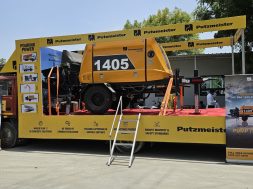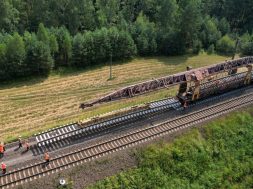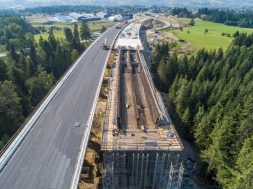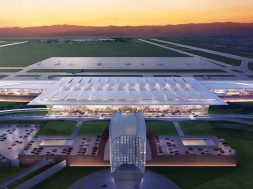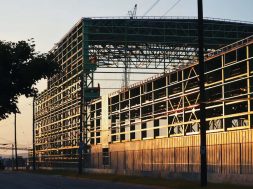HCV Insurance: how to choose a better deal
HCV Insurance: how to choose a better deal
Commercial vehicles, whether carrying good or passengers, consequently require specific insurance coverage to protect the business in loss. Commercial vehicle insurance policies reflect these specialised needs with specialised coverage and features
Ravichandran N, Senior Vice President – Underwriting, Future Generali India Insurance
The Indian commercial vehicle (CV) industry is the life line of the economy. The CV industry draws its demand from the economy; hence, it is prone to cyclicality. Indian commercial vehicle industry had entered a cyclical phase from the beginning of 2012-13. Slowing industrial growth and weakening investment outlook across various sectors has had a significant adverse impact on commercial vehicles segment since later part of FY 12, after achieving volume growth of over 30 per cent during the earlier years 2009-10 and 2010-11.
Segment-wise performance has thrown an interesting picture. While the light commercial vehicle (LCV) segment continued to sustain its growth momentum with an increase of about 15 per cent in 2012-13, the M&HCV bore the brunt of slowing industrial activity, weak investment sentiment and the impact of significant fleet capacity addition over the past 3 years, especially in the heavy-duty categories of the trucking market.
The trucking segment in India is witnessing interesting trends, while the heavy and medium commercial vehicle segment is witnessing steady increase in share of heavy duty, long haulage trucks owing improvement in road and highway infrastructure. Besides improving highway infrastructure, the trend toward higher tonnage trucks has also been supported by the introduction of newer, advanced platforms/vehicles by both incumbents as well as foreign OEMs.
Commercial vehicles, whether goods carrying or passenger carrying, consequently require specific insurance coverage to protect the business in the case of loss. Commercial vehicle insurance policies reflect these specialised needs with specialised coverage and features.Thus, insurance of commercial vehicles minimises the financial impact on the customers. Should an accident occur, customer has significant business assets to protect and potentially complex issues of liability. Without adequate and appropriate insurance coverage for the vehicles, the business itself is at risk. As a business owner, even minor traffic accidents can cause major hassles in keeping operations running smoothly. So responsiveness and reliability of a commercial vehicle insurance specialist is required who understands the critical nature of getting vehicles back on the road.
Insurance types for commercial vehicles• Liability only policy: Popularly known as third-party cover, this policy covers liability for third-party injury/death, third-party property and liability to paid driver. This cover is mandatory in India for any vehicle that plies on the road.• Comprehensive policy: This Policy, in addition to the mandatory liability insurance as, covers loss or damage by accident, fire, lightning, self-ignition, external explosion, burglary, housebreaking or theft, malicious act. In other words, comprehensive policy is a combination of the third-party cover and the own damage cover, implying loss or damage to the vehicle itself.• On payment of appropriate additional premium, a comprehensive policy can also be extended to cover loss/damage to electrical/electronic accessories.
The premium of the insurance is calculated on certain factors like types of commercial vehicle, carrying capacity, year of manufacture, place of registration, the structure and model of the vehicle, etc.
Insurance of vehicles in India was governed by a tariff until 2007. Post removal of tariff, insurance industry has coming up with new innovations in products and coverage in the interests of both the industry and the customer.
Zero depreciation coverage: In partial loss, the insured has to bear some portion cost toward depreciation which depends upon the age of the vehicle. Under zero depreciation coverage, the insurance company will not deduct such depreciation amount from the claim.
New vehicle replacement coverage: In a total loss of vehicle, insurance companies generally pay the Insured Declared Value (IDV) of the policy, which is always lesser than the replacement value of a new vehicle. As a result, customers have to bear the difference in amount. However, under the new vehicle replacement coverage, at the time of purchase of a new replacement vehicle, of a similar make and model, the customer would be paid the current ex-showroom price of the replacement vehicle. The customer would also be paid the current cost of insurance and registration, subject to adjustment of refunds.
Loss of income/vehicle hire cost: A commercial vehicle is a source of livelihood for the operator, and any accident/total loss of a vehicle has an adverse impact on the income of the vehicle operator. Under the loss of income/vehicle hire cost cover, reimbursement toward such loss of income would be provided to the customer.
Towing coverage: Under this coverage, the company will bear the reasonable cost of towing the insured vehicle from the spot of accident to the nearest repairer as approved subject to an upper limit.
Engine protector: The coverage covers consequential damage to the internal parts of the engine, which may arise out of water ingression or damage to gear box of the vehicle arising out of leakage of lubricating oil due to accident.
Some segments of commercial vehicles which are used as construction equipment like tipper, dumper and bulkers can be insured for comprehensive coverage under contractors’ plant and machinery policy when they are used in specific project. This is an exclusion-based policy which covers accidental incidents other than those excluded. The policy broadly covers loss or damage due to an accident arising out of external perils. The cover is operative while the insured property is at work or at rest, or being dismantled for the purpose of cleaning, overhauling or during subsequent re-erection. However, unlike in motor policy, the coverage, here, is confined to the specific project site only.
Additional coverage, which can be taken under this policy, are express freight (excluding air freight), overtime and holiday rates of wages, air freight, owners’ surrounding property, clearance and removal of debris, additional customs duty, escalation, third-party liability, earthquake and act of terrorism.
As with any other product or service, it is not advisable to decide on taking an insurance product merely based on pricing. One needs to consider the value it delivers, especially in unfortunate event of a claim. Competition has enabled more choices of products to customers. Hence, it is important for a customer to choose the right product which offers adequate coverage against the risks and ensures meaningful compensation in a claim.
Cookie Consent
We use cookies to personalize your experience. By continuing to visit this website you agree to our Terms & Conditions, Privacy Policy and Cookie Policy.



